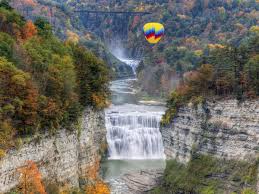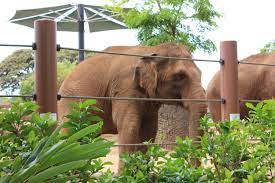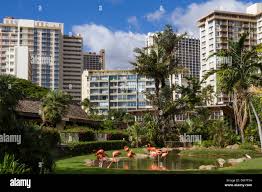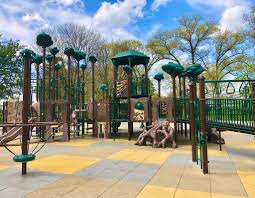Aulani Resort Hawaii: Where Magic Meets Paradise
Welcome to Aulani Resort Hawaii
Located on the beautiful shores of Oahu, Aulani Resort is a stunning beachfront paradise that offers a perfect blend of luxury and Hawaiian culture. The resort, owned and operated by Disney, is designed to provide guests with an unforgettable vacation experience filled with magic and relaxation.
From the moment you step foot onto the property, you are greeted with warm aloha spirit and breathtaking views of the Pacific Ocean. Aulani Resort features a variety of accommodations ranging from spacious rooms to luxurious villas, all designed with Hawaiian-inspired decor and modern amenities.
Guests can indulge in world-class dining options that showcase the flavors of Hawaii, relax at the award-winning spa, or enjoy the numerous pools and water activities available on site. For families, there are endless entertainment options including character experiences, storytelling sessions, and cultural activities that celebrate the rich heritage of Hawaii.
One of the highlights of Aulani Resort is its commitment to preserving Hawaiian culture and traditions. The resort offers educational programs, such as hula lessons and ukulele classes, that allow guests to immerse themselves in the local customs and practices. Additionally, Aulani works closely with local artisans and performers to showcase authentic Hawaiian arts and entertainment throughout the property.
Whether you are seeking a relaxing getaway or an adventurous family vacation, Aulani Resort Hawaii offers something for everyone. Come experience the magic of Disney combined with the beauty of Hawaii at this one-of-a-kind destination!
Top 6 Tips for an Unforgettable Stay at Aulani Resort, Hawaii
- Pack sunscreen and insect repellent for outdoor activities.
- Make dining reservations in advance to secure a table at popular restaurants.
- Take advantage of the complimentary cultural activities offered at the resort.
- Explore the nearby beaches and hiking trails for a taste of Hawaii’s natural beauty.
- Book spa treatments early to ensure availability during your stay.
- Don’t forget to try traditional Hawaiian dishes and drinks while at Aulani.
Pack sunscreen and insect repellent for outdoor activities.
When planning your visit to Aulani Resort Hawaii, remember to pack essential items like sunscreen and insect repellent for outdoor activities. Hawaii’s sunny climate calls for adequate sun protection, so be sure to apply sunscreen regularly to prevent sunburn and skin damage. Additionally, insect repellent can help keep pesky bugs at bay during your outdoor adventures, ensuring a more comfortable experience. By packing these items, you can fully enjoy the beautiful landscapes and activities that Aulani Resort has to offer without worrying about sunburn or insect bites.
Make dining reservations in advance to secure a table at popular restaurants.
To make the most of your dining experience at Aulani Resort Hawaii, it is highly recommended to make dining reservations in advance. Securing a table at popular restaurants ahead of time ensures that you can enjoy a delicious meal without the stress of waiting for a table. By planning ahead and making reservations, you can guarantee that you will have a memorable dining experience at the resort’s sought-after restaurants, allowing you to relax and savor every moment of your stay at Aulani.
Take advantage of the complimentary cultural activities offered at the resort.
Guests staying at Aulani Resort Hawaii should make sure to take advantage of the complimentary cultural activities offered on site. From hula lessons to ukulele classes, these experiences provide a unique opportunity to immerse oneself in the rich traditions of Hawaiian culture. By participating in these activities, guests can gain a deeper appreciation for the local customs and practices while creating lasting memories of their time at the resort.
Explore the nearby beaches and hiking trails for a taste of Hawaii’s natural beauty.
Immerse yourself in the natural splendor of Hawaii by exploring the nearby beaches and hiking trails around Aulani Resort. Take in the breathtaking views of the Pacific Ocean, feel the warm sand between your toes, and discover the lush landscapes that make Hawaii so unique. Whether you’re seeking a leisurely beach day or a challenging hike through the island’s terrain, venturing out to experience Hawaii’s natural beauty will surely leave you enchanted and rejuvenated.
Book spa treatments early to ensure availability during your stay.
To make the most of your stay at Aulani Resort Hawaii, it is recommended to book spa treatments early to ensure availability during your visit. The spa at Aulani offers a range of luxurious treatments designed to pamper and rejuvenate guests in a serene Hawaiian setting. By booking your spa appointments in advance, you can secure your preferred treatment times and ensure that you have the opportunity to relax and unwind during your stay at this beautiful beachfront paradise.
Don’t forget to try traditional Hawaiian dishes and drinks while at Aulani.
While staying at Aulani Resort Hawaii, be sure not to miss out on the opportunity to savor traditional Hawaiian dishes and drinks. Delight your taste buds with authentic flavors that capture the essence of Hawaiian cuisine, from fresh poke bowls and kalua pig to refreshing mai tais and tropical fruit cocktails. Embracing the local culinary offerings at Aulani will not only satisfy your appetite but also provide a true taste of Hawaii’s rich food culture.





